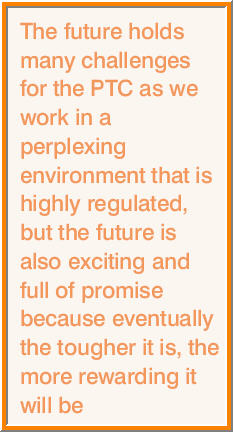INTERVIEW
A sharp rise in the illicit trade of cigarettes has not only burnt a hole in the share/profits of legal industry players but also dealt serious blows to the government's revenue collection. It was stated by Syed Javed Iqbal, managing director (MD) of Pakistan Tobacco Company (PTC), a part of British American Tobacco, in an exclusive interview with the Money Matters.
 Q: What is your take on the smuggling of cigarettes in the country?
Q: What is your take on the smuggling of cigarettes in the country?
A: Today, there are two kinds of stakeholders in tobacco industry in Pakistan: The legitimate/taxpaying and the illegal/duty-evading.
It is a critical time for us. An exponential growth in undocumented cigarette trade is weighing down on the legitimate players and government. The pressure is mounting by every passing day. The PTC and Philip Morris Pakistan are the only lawful cigarette companies in the country and collectively our share has decreased from 72 percent to 60 percent in the past one year alone.
In 2015, the total market share of illegal cigarettes was about 27.7 percent and today it has crossed the 40 percent mark, which shows the alarming pace at which this black-cigarette-economy is expanding.
Despite the fact the legitimate industry pays due taxes complying with the legal and regulatory requirements, nothing is being done to check the open sale of smuggle cigarettes across the country.
The government is being deprived of revenues in excess of an estimated more than Rs40 billion annually and the legal cigarette selling/marketing firms are rapidly losing volume, while illegal industry continues to sell a substandard, unregulated, and untaxed merchandise in broad daylight.
We strongly urge the government to intensify law enforcement to curb the duty-evading sector. If not challenged now, the mushroom growth of illicit business may further deterioration the licit sector hitting government revenues, jobs, and overall economic activity generation associated with the industry.
Q: Tell us about your future plans?
A: The operating environment poses numerous challenges; however, the PTC remains committed to enhance shareholder value and is confident that it will continue to do so through continuous productivity initiatives, a strong brand portfolio and its people.
Q: What challenges and opportunities do you see in Pakistan?
A: I have always believed in focusing on the myriad of opportunities our country offers. The quality of people and a resilient workforce is distinctive to our country and is also its strength. Our people have made a mark internationally because of the kind of passion they bring to the table having gone through the challenges that exist in any developing country.
The future holds many challenges for the PTC as we work in a perplexing environment that is highly regulated, but the future is also exciting and full of promise because eventually the tougher it is, the more rewarding it will be.
Q: What is your overview of the Pakistani market?
A: Looking at macroeconomic indicators, the Pakistani market is developing at a healthy pace. Pakistan still faces many macro-economic challenges however they are being addressed gradually and are reflected by a lowering fiscal deficit, improving investment climate etc. Here, the key here is to note that Pakistan’s economic recovery has been globally endorsed but there’s a need to continue the pace of growth if these gains are to be consolidated.
On the top of the list of reforms, required at this stage, is widening the tax net so that a level playing field is established. Currently the country collects only little more than half of what it should and that is a worrying fact because it allows billions to be pilfered from the national exchequer and harms the taxpaying industry and individual consumer both.
The writer is a staff member